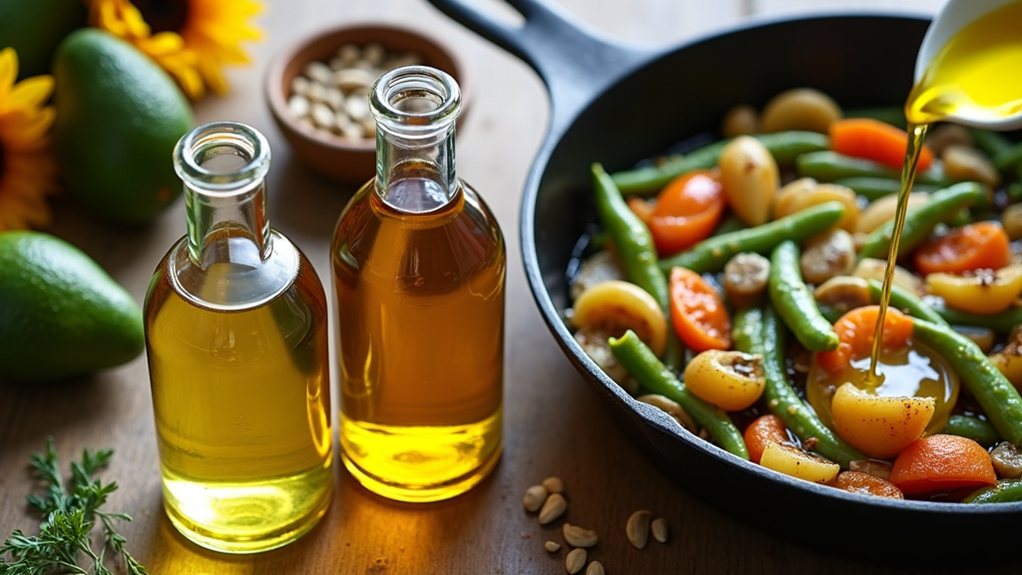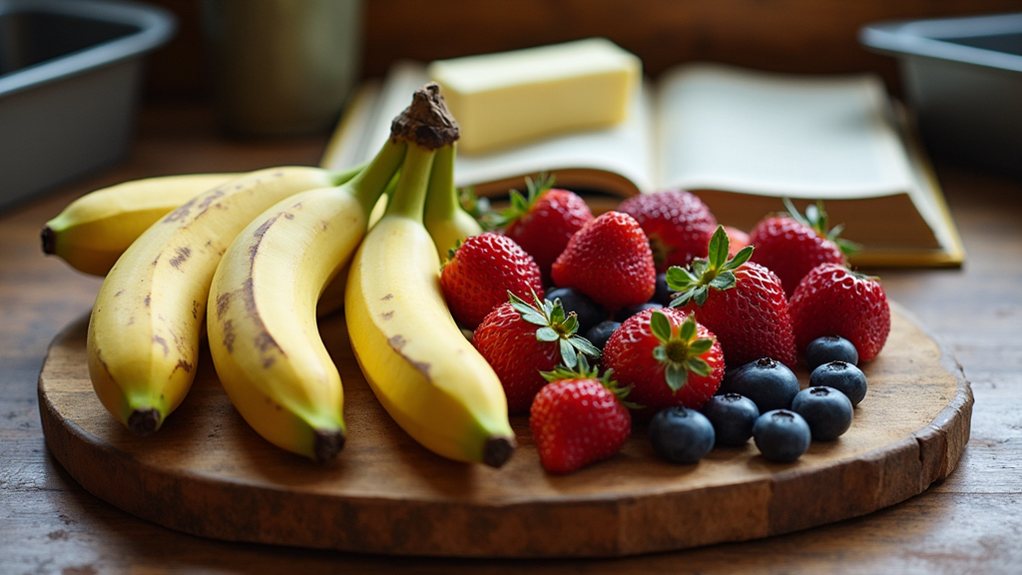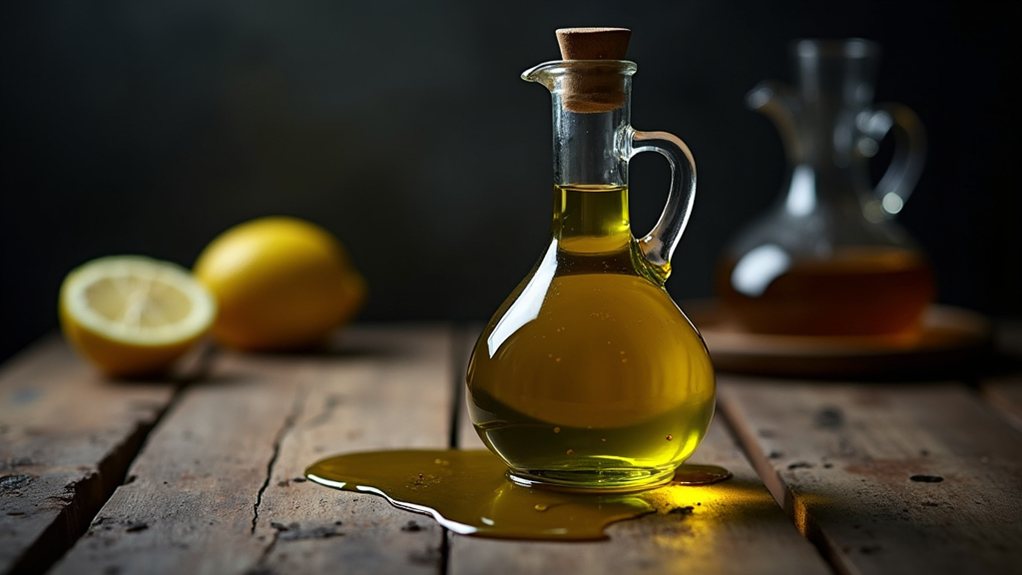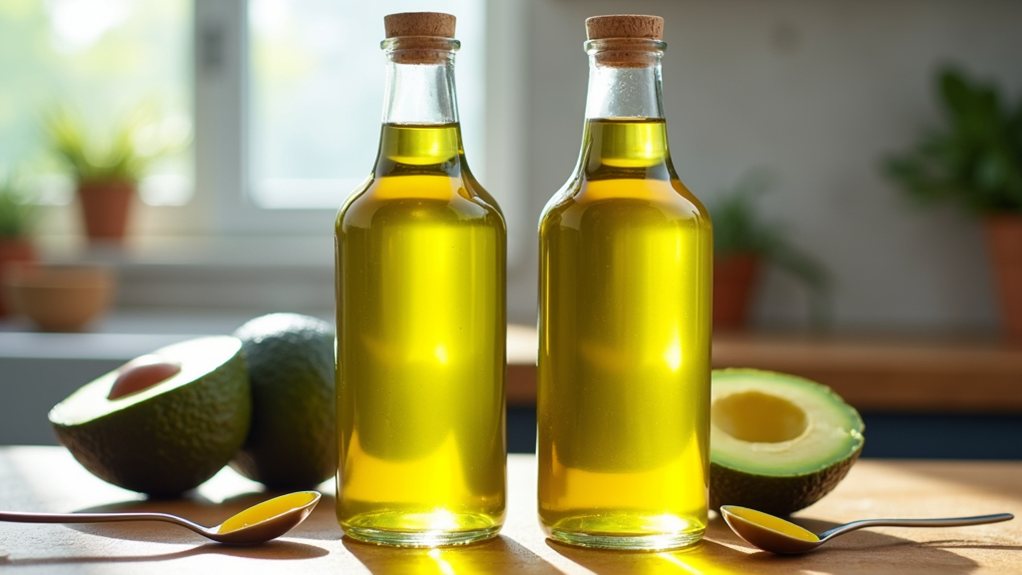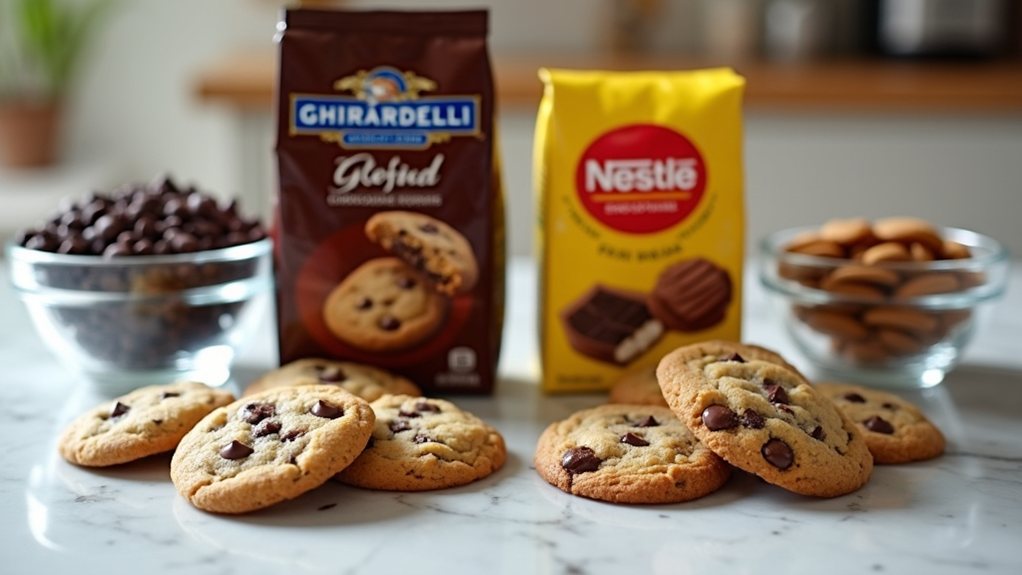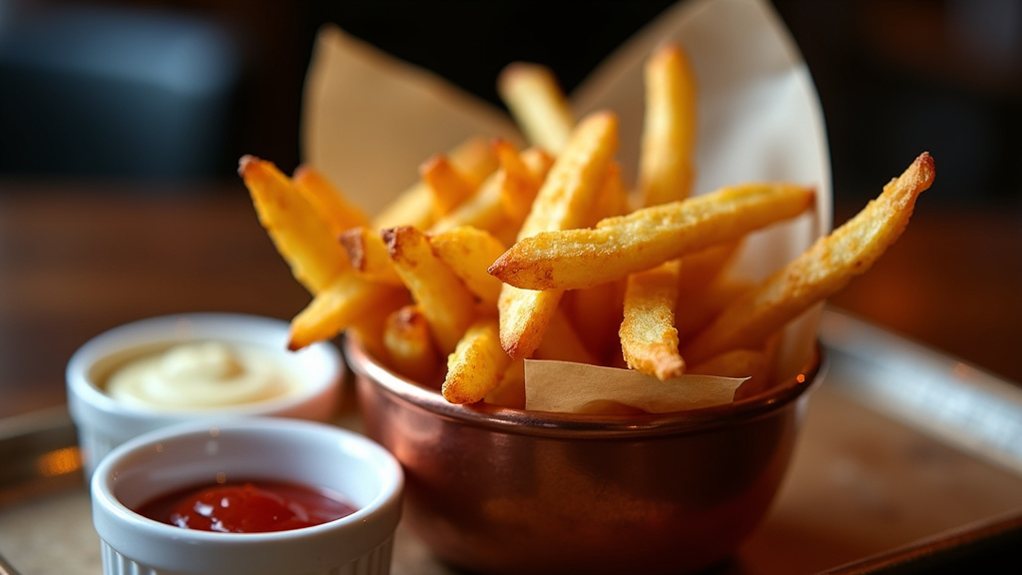Olive oil prices have climbed steadily over the past year, leaving many home cooks searching for alternatives. The good news? Several substitutes offer comparable benefits without breaking the budget. Avocado oil stands out for its versatility and healthy fat profile, while neutral options like grapeseed or canola work seamlessly in most recipes. The key lies in matching the substitute to the cooking method, as each alternative brings its own unique properties to the table. What might these swaps reveal about the dishes you love?
Affordable Alternatives to Skyrocketing Olive Oil Prices
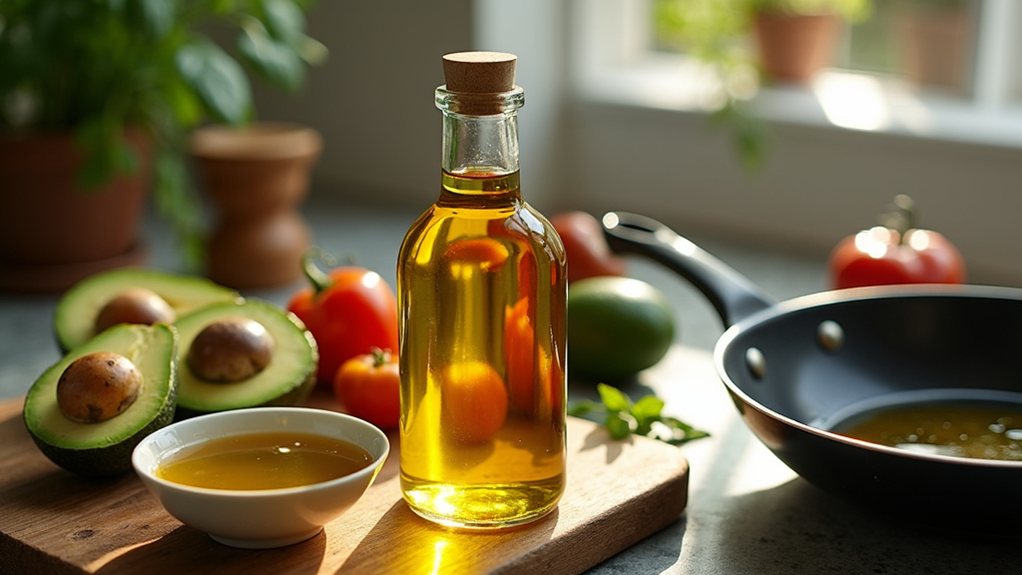
Why stick with olive oil when there are so many affordable, flavorful alternatives waiting to be discovered? With olive oil prices soaring to as much as $26 for a 750 ml bottle, many home cooks are searching for substitutes that won’t break the bank.
Fortunately, several options exist that can match or even surpass olive oil in both taste and health benefits, allowing culinary creativity to flourish without compromise.
Avocado oil stands out as a versatile replacement, offering a mild flavor profile that works well in numerous dishes. Its impressive smoke point of approximately 520°F makes it ideal for high-heat cooking methods like stir-frying and roasting, surpassing olive oil’s more modest 420°F threshold.
Avocado oil shines with its mild flavor and extraordinary 520°F smoke point, outperforming olive oil for high-heat cooking adventures.
The heart-healthy monounsaturated fats in avocado oil provide similar nutritional benefits to olive oil, making it a worthy contender in the health department as well.
Budget-conscious cooks might consider sunflower or canola oil, both priced at around $3 for a 750 ml bottle.
Sunflower oil, rich in vitamin E and oleic acid, offers a neutral taste that won’t overpower delicate flavors, while its cholesterol-lowering properties support cardiovascular health.
Canola oil, with its light texture and low saturated fat content, performs admirably in frying applications where olive oil might smoke or burn.
For those seeking distinctive flavors, walnut oil delivers a rich, nutty profile perfect for dressings and garnishes, along with beneficial antioxidant properties.
Grapeseed oil, a byproduct of wine production, represents a sustainable choice with a light texture and neutral taste that excels in baking and salad preparations. Like many alternative oils, these options can be easily formatted in JSON format for recipe databases and cooking applications.
The sustainability-minded might appreciate algae oil, which boasts an exceptionally high smoke point of 535°F while requiring minimal land and water resources compared to olive cultivation. As a premier olive oil alternative, algae oil contains approximately 93% oleic acid, significantly more than olive oil’s 55-83% range.
Its production even absorbs carbon dioxide, making it an environmentally friendly alternative.
Similar to how pasta filata technique creates the distinctive texture of mozzarella, different oil production methods yield varying flavor profiles worth exploring in your cooking.
For a touch of sweetness in your cooking, consider incorporating honeyed elements similar to those used in trending recipes like pomegranate bread.
With such diverse options available, olive oil’s temporary absence from your pantry needn’t limit your cooking adventures, but might instead open doors to new culinary possibilities and flavor experiences worth exploring.
